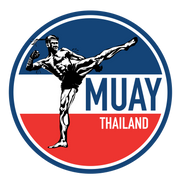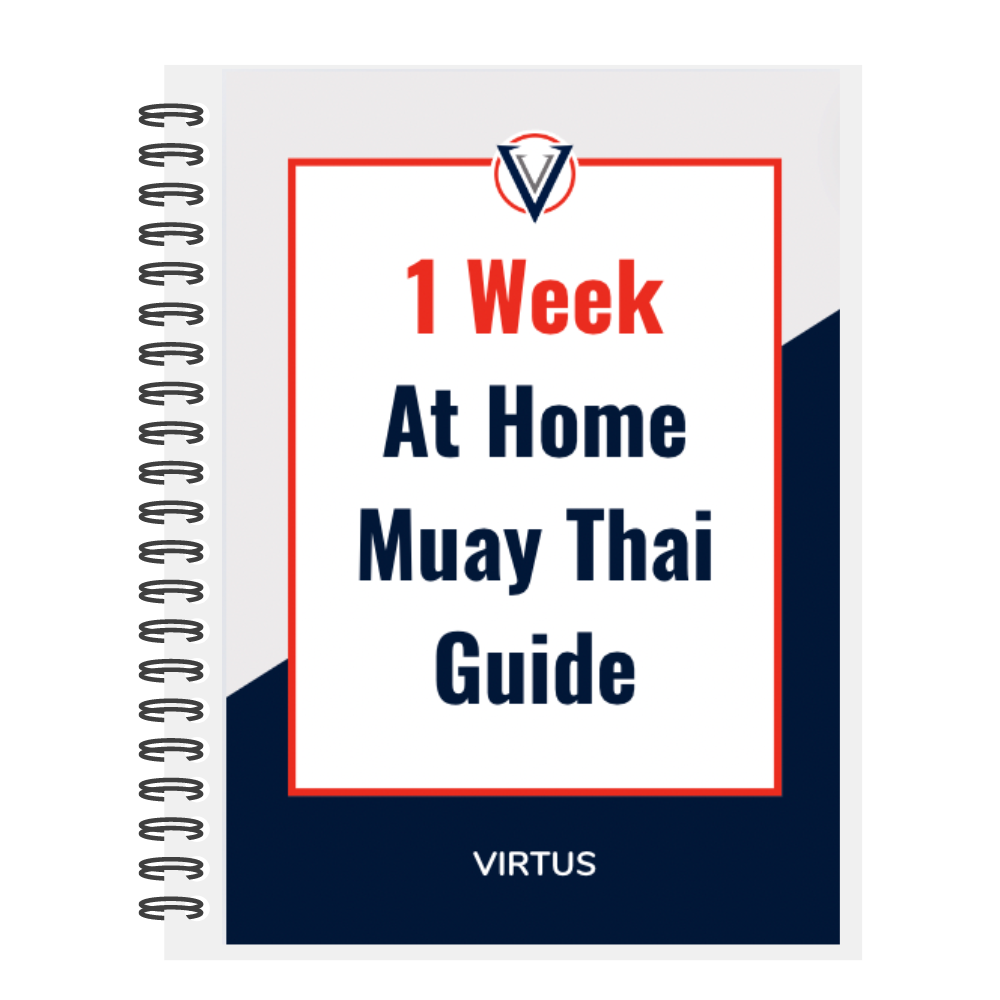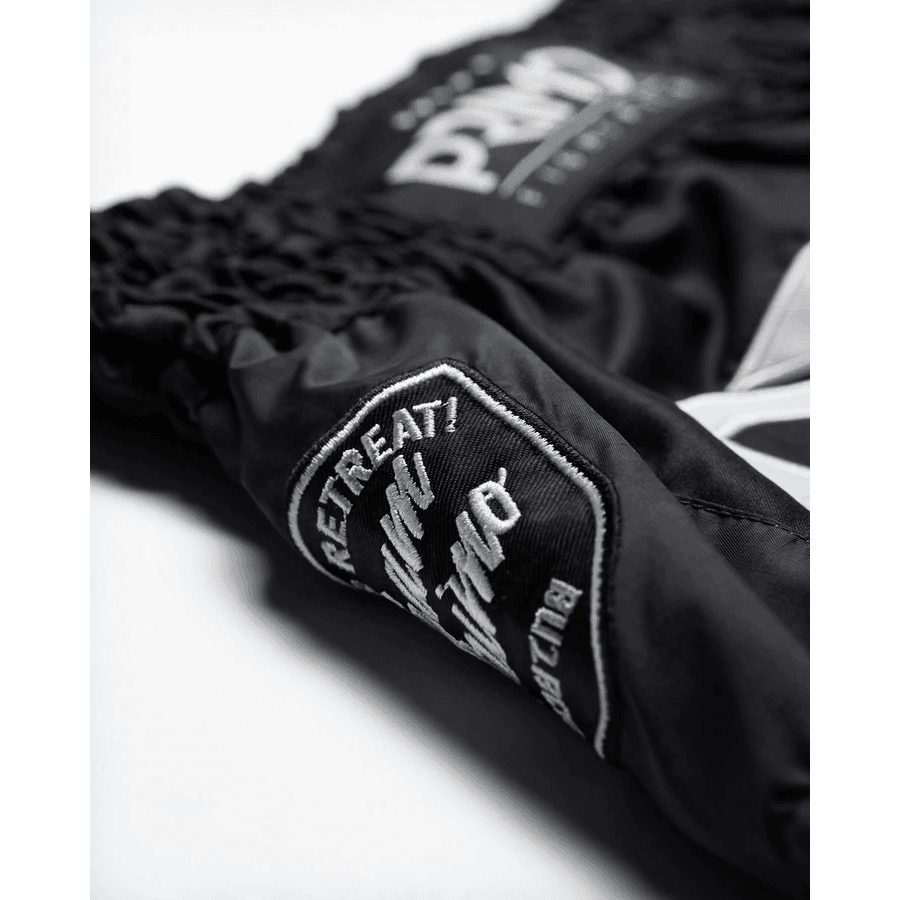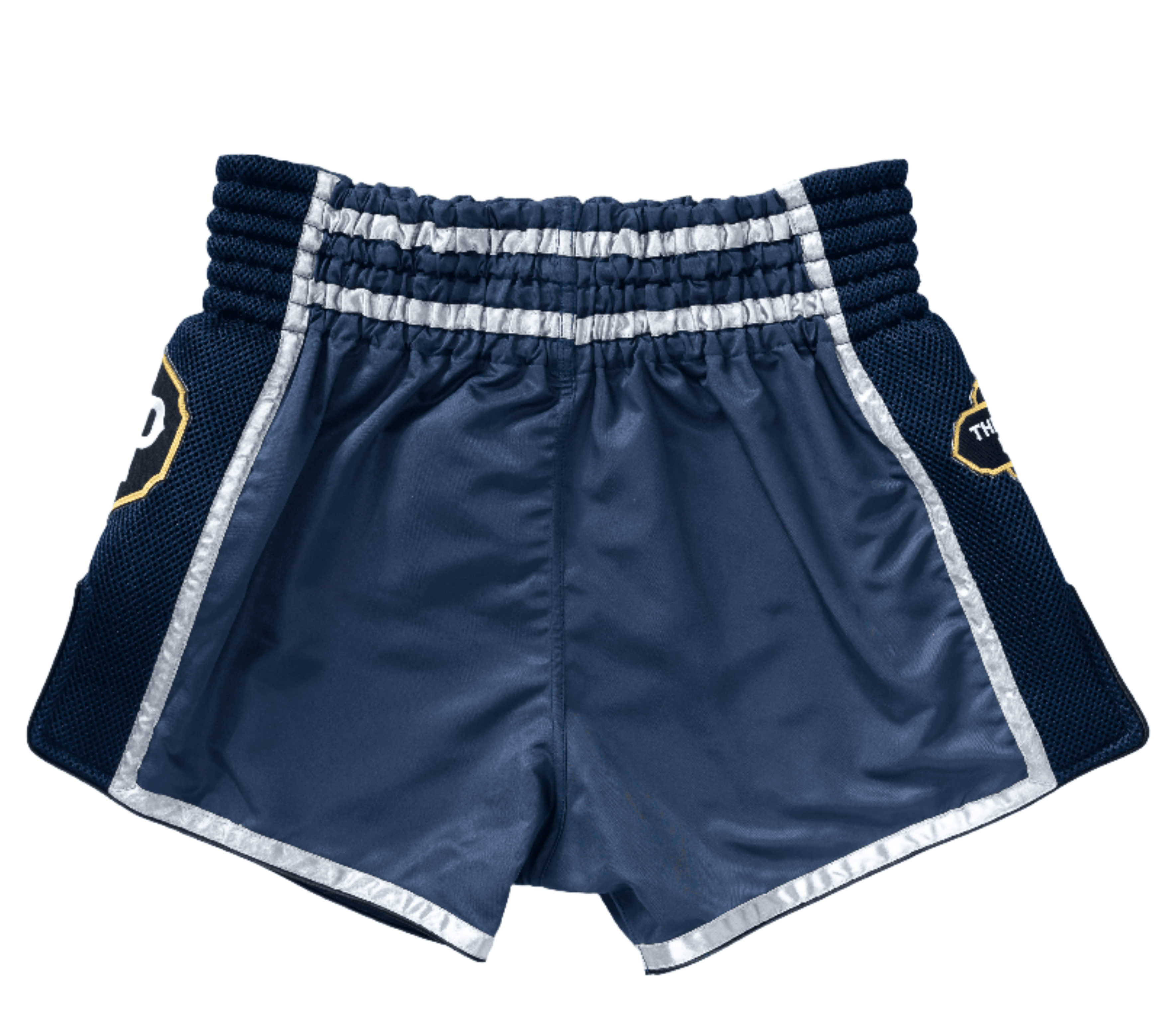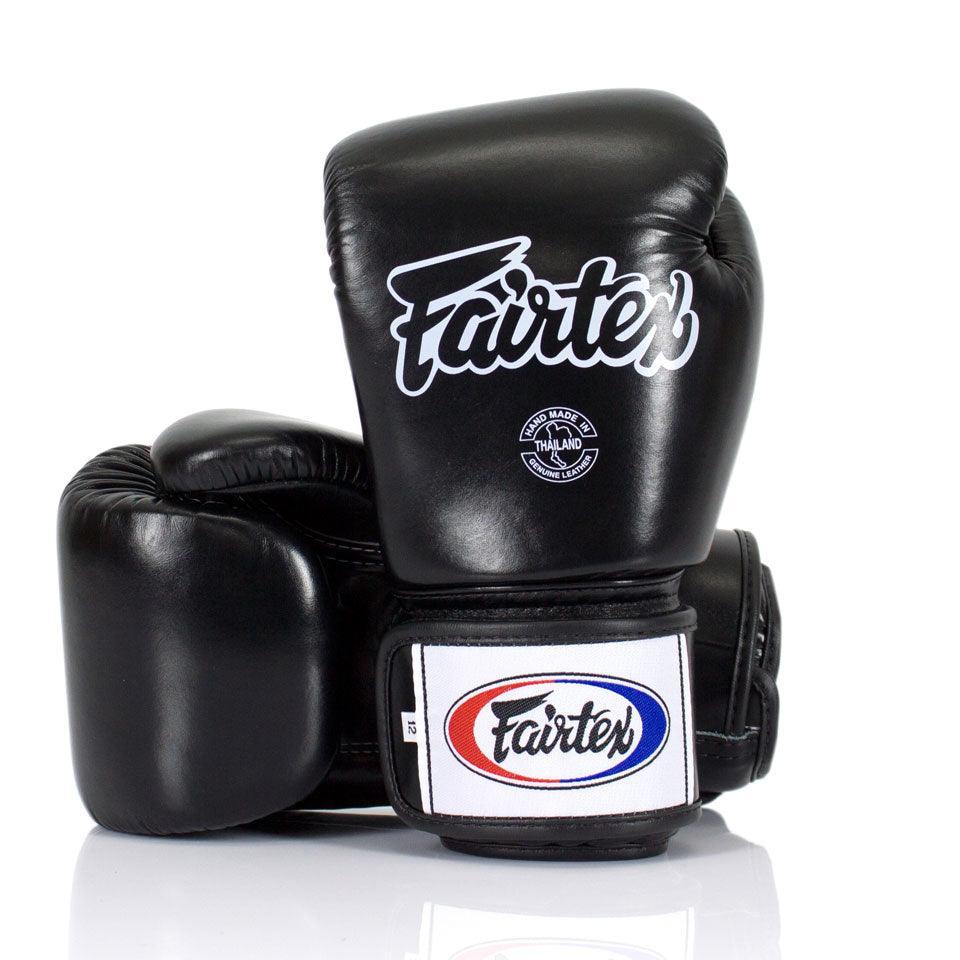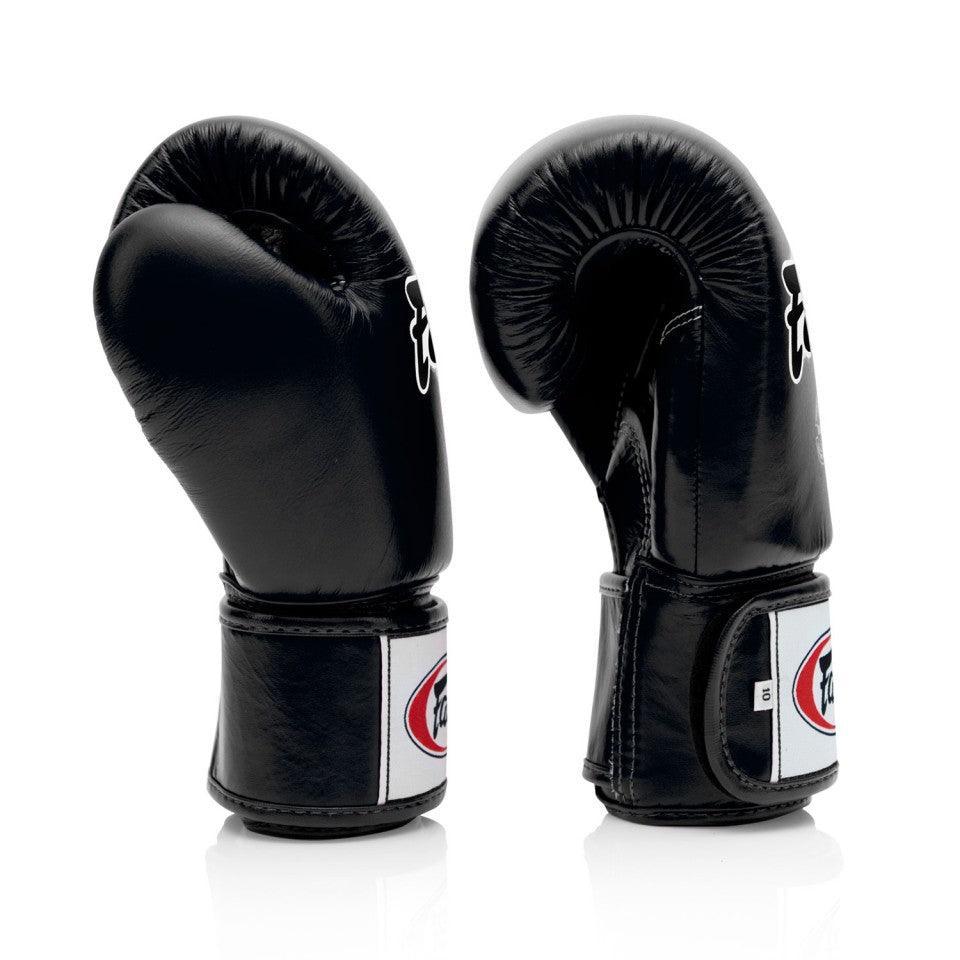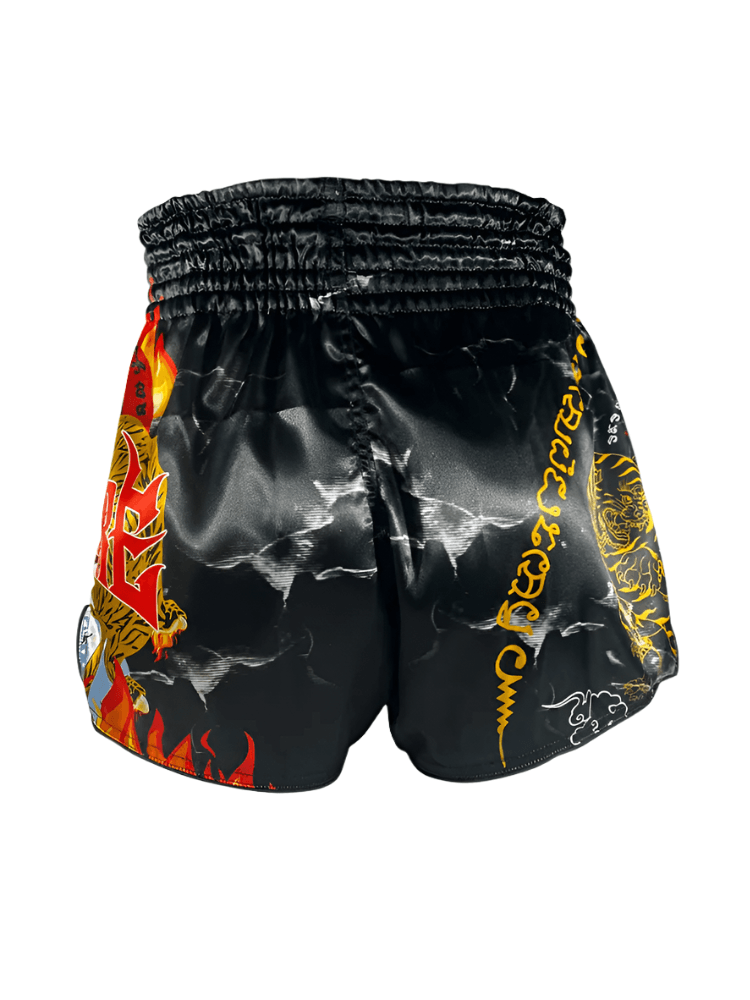Not only do you burn more calories in that time frame compared with conventional exercises, but you increase strength, flexibility, and knowledge of combat sport more so too. No wonder it's a popular martial art for those that just want to get fit and healthy while having fun.
Get a good partner
Muay Thai is often considered an individual sport and, in many ways, it is. However, the quality of your training is significantly influenced by various factors besides yourself, not least of these is the partner you work with. Your training partner can make or break the quality of your sessions. If they don't have the same enthusiasm, skill and willingness to learn and exert as you, you won't be able maximise your time – unless your focusing on bag work. Likewise, if they don't want to get fit with Muay Thai, or at least maintain a level of fitness, it's likely they won't push the pace needed to enjoy all the physical benefits the sport offers.
Furthermore, pad-work is an art in itself and if your partner doesn't appreciate this and simply sees it as a “break” before getting back on the pads, you should seek out a new partner. A great potential partner is someone who understands that their effort and knowledge of effective pad-work directly correlates to their partner's learning. If you can partner with someone who has extensive experience holding the pads, you can let them know you're there to get fit and they can dictate the pace appropriately, ensuring the pads are properly placed as to mitigate the risk of injury too. Padwork when done properly and mixed with cardio, is a great way of getting and keeping fit.
Ideally you can train with a friend you know outside of Muay Thai and who has similar goals for the sessions. Otherwise, if you don't know anyone at the gym, you're likely to get paired with other newcomers or simply anyone that can't find a partner. Be mindful, this means you could end up with someone without much skill on the pads or someone who has plenty of experience as a martial artist and who you can learn a great deal from during your Muay Thai lessons.
Focus on quality, then quantity
There's plenty a time and place when quantity trumps quality. However, it's not when you're starting out in Muay Thai, no matter whether you're just looking to keep fit or compete. Executing high-quality strikes with proper techniques engages far more muscles than improper technique, which, in turn, increases flexibility, power and conditioning. Throwing strikes with sloppy technique at a high pace exposes you to injury, gassing out and getting disinterested very quickly. As you hone your technique, you'll be able to strike with greater precision and power while reducing the chance of injury or gassing yourself out, thereby enabling you to train at a more consistent pace for longer. This foundation is key for stepping up the overall pace and quantity of strikes/motions you execute per training session.
Once you have a solid technical foundation, you can spend less effort trying to hone technique, thinking about approach or keeping balance and instead focus on increasing pace, the number of strikes and the power of strikes. Thereafter you'll really start to see the health benefits of Muay Thai as you'll burn more calories, increase flexibility and build your overall fitness.
Embrace heavy conditioning
Strength and conditioning training is a key element of building overall strength, fitness and endurance. It does so by developing your core and strengthening your skeletal muscles through resistance, tension, damage and recovery. There are many ways to develop your strength and conditioning, although some of the methods you'll find in Muay Thai training are quite different from a typical gym. For example, standing with arms raised while your partner kicks you repeatedly in the body and legs and getting struck in the gut during sit-ups are common conditioning methods in Muay Thai gyms. They're not the most enjoyable part of training but they certainly contribute to your conditioning and posture. Embrace them as part of your overall routine.
While these methods may seem uncomfortable and even a little intimidating at first, their effectiveness is evident in the strength, conditioning and endurance of Muay Thai and MMA fighters. Their ability to dish-out and take prolonged punishment without gassing out demonstrates the potential positive influence of these types of conditioning methods on one's overall fitness. Embrace heavy conditioning and perseverance, and don't be afraid of a few bruises - in fact, they can be a badge of honor in the world of Muay Thai.

Eat right and keep hydrated
It's a common truth that abs are made in the kitchen. It's also true that your strength & stamina for Muay Thai training is made in the kitchen, as is your ability to quickly recover from strenuous sessions. You are what you eat and so your performance is dependent on what you feed your body. If you eat high fat or high sugar, starchy or oily foods before and after sessions, you're likely to perform poorly and recover slowly. Instead, if you eat the right carbs before a session and eat high-protein foods after sessions, you'll optimise performance and speed up recovery. Fruit and vegetables are key to a varied diet which, when routinely consumed, will help you perform at your best.
All this though is heavily influenced by the amount of water you intake. You're body is made up of 60% water and you need to retain water for effective physical and mental function. Unless you keep hydrated and regularly drink water – there's a consensus that 8 glasses or 2 litres per day is right – good eating habits won't manifest in good results. Therefore, keep track of your daily intake and be consistent on all days of the week, not just those that you're training. On days that you are training, you can drink more water before a session (an hour before as to not have “water on the belly”) so you're fully hydrated and prepared for the sweat you'll secrete. This has the added advantage of limiting your need to drink heavily during the session - which slows you down and can cause discomfort. Instead, you'll just need a little here and there to wet your mouth.
Consistency is key
Don't expect to see worthwhile results from a couple of training sessions. It takes time for your body to adjust to any type of exercise – whether you've done it before and are getting back into it or you're entirely new to the exercise – and regular training is key to achieving measurable positive results. You'll need to consistently exert high-levels of energy too, not simply show up to training because you know you need to go twice a week, for example.
Each time you go to training, try leave it all in the gym. Exert maximum energy and learn as much as possible. In between sessions, think about training and what you can do to improve, thereby building some mental preparation for your next session.
This type of consistency will invoke the beauty of compound interest, as each time you train you'll improve by at least 1% - which will cumulatively grow each time you train. Therefore, you'll be able to achieve your goals faster, get fit quicker and stay fit for longer too.
Have a positive mindset
Your mindset dictates the way you perceive, react, decide and interpret the vast majority of things that come into your life. Therefore, your character and actions are a reflection of your mindset. Your mind is incredibly powerful and being in control of your mind can drive you to immense success. Therefore, it's incredibly important to feed your mind with positivity. Reading/watching negative news, endlessly scrolling through social media and dwelling on negative images/experiences in your past/present/future will develop a negative mindset, whereby you'll doubt yourself and others, get comfortable with boredom and miss out on being the best you can be. Instead, create a positive image of yourself and your future in your mind and reinforce that through daily affirmations, regularly visualisation and positive action. Read daily. Work to see the best in every person and situation. Feed your mind with positivity and you'll develop yourself and your future into a positive one.

Treating your mind in such a way has a direct correlation on the way you'll behave and think about training. With a negative mindset, you may see Muay Thai as a great way to release pent up energy/anger, yet the buzz you get from doing so will soon wear off. However, if you have a positive mindset, you too can use Muay Thai as such an outlet but you'll also be thinking about how it contributes positively to your overall fitness and health. Not only does Muay Thai have physical benefits, but it also helps reduce stress and release endorphins, including adrenaline, to elevate your mood. With a positive mindset, you'll be able to develop spontaneity in your reflexes and decisions, and have the motivation to consistently train with high-energy every time.
FAQs
Will Muay Thai get you in shape?
Yes, Muay Thai is an excellent way to get fit both physically and mentally. It offers a full-body workout that improves cardiovascular health, strength, flexibility, and agility. Additionally, incorporating Muay Thai into your fitness routine can help develop discipline, confidence, and a positive mindset. Regular practice can lead to increased fitness levels and overall well-being.
Is Muay Thai hard on the body?
Yes, Muay Thai can be physically demanding and hard on the body for the average person due to its intense training regimen that includes a combination of cardio, strength training, and repetitive striking techniques. However, with proper guidance from knowledgeable instructors and adequate rest and recovery, practitioners can minimise the risk of injuries and maximize the benefits of improved fitness and mental well-being.
Is Muay Thai an age-specific workout routine?
Muay Thai is suitable for individuals of various age groups, as long as they are in good health and physical condition. It can be adapted to suit different fitness levels and goals, making it a versatile workout routine for people of all ages. However, beginners should start at a comfortable pace and gradually increase the intensity of their training under the guidance of experienced instructors to prevent injuries and ensure progress.
How Does Muay Thai Help Build Muscles?
Muay Thai is a high-intensity workout that engages multiple muscle groups simultaneously, leading to increased muscle strength and definition. The dynamic movements in Muay Thai, such as kicks, punches, and clinching, help tone and build muscles in the arms, legs, core, and back. Additionally, the repetitive striking techniques and bodyweight exercises involved in training contribute to muscle growth and endurance development over time, making it a popular choice for those looking to improve their fitness and overall health. As the national sport of Thailand, Muay Thai has a rich history and cultural significance, making it a unique and exciting way to get fit.
How many times a week should you do Muay Thai?
Ideally, beginners can start with 2-3 sessions per week to allow the body to adjust to the intensity of Muay Thai training. As practitioners progress and build endurance, they can gradually increase their training frequency to 4-6 times a week if their schedule and recovery allow. It is essential to listen to your body and incorporate rest days into your routine to prevent overtraining and promote muscle recovery and growth.
